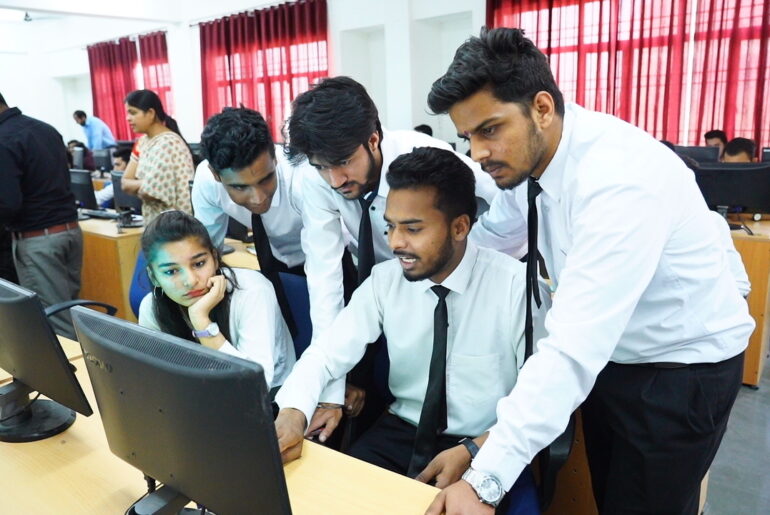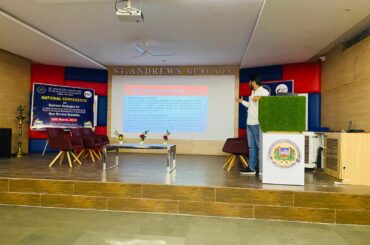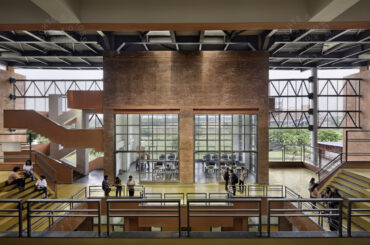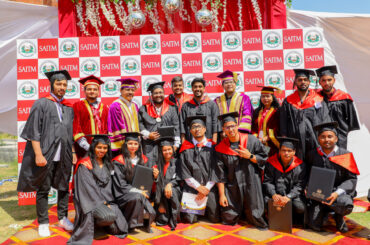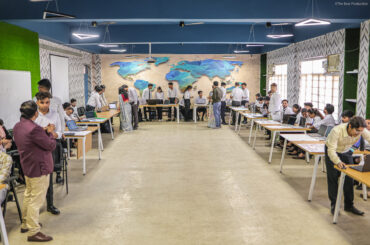B Tech Entrance Exam
B Tech Entrance Exam in India serves as a gateway for students aspiring to pursue undergraduate engineering programs.
These exams are highly competitive and are conducted by various national, state, and private institutions.
The main objective of B Tech Entrance Exam is to evaluate candidates’ understanding and proficiency in essential subjects such as Physics, Chemistry, and Mathematics, which are foundational for pursuing engineering studies.
Understanding the admission process is essential for students to navigate these exams successfully.
Purpose of B Tech Entrance Exams
The main objectives of top engineering entrance exams are:
Standardized Assessment: To evaluate the academic preparedness of students from different educational backgrounds.
Merit-Based Selection: To ensure that admissions are based on merit, providing equal opportunities to all candidates. A merit list is created to rank candidates based on their performance.
Streamlined Admissions: To simplify the admission process for engineering college across India.
Common Features of B.Tech Entrance Exams
Eligibility Criteria: Typically, candidates must have completed their 10+2 education with Physics, Chemistry, and Mathematics. Specific eligibility may vary by exam.
Exam Pattern: Most exams feature multiple-choice questions covering Physics, Chemistry, and Mathematics. Some may include sections on English proficiency and logical reasoning.
Syllabus: The syllabus for BTech entrance exams usually includes topics from the 11th and 12th-grade curriculum of the respective state or national educational boards.
Mode of Exam: Exams can be conducted online (computer-based) or offline (pen-and-paper based).
Some of the most opted courses in India and St. Andrews college or different Engineering college or Management colleges are as follows:-
- Btech
- Btech CSE
- Btech ETCE
- MTech
- BCA
- BBA
- MBA
- MCA
- DPharma – St. Andrews College of Pharmacy
- BPharma – St. Andrews College of Pharmacy
- BArch – St. Andrews College of Architecture
BTech Course Overview
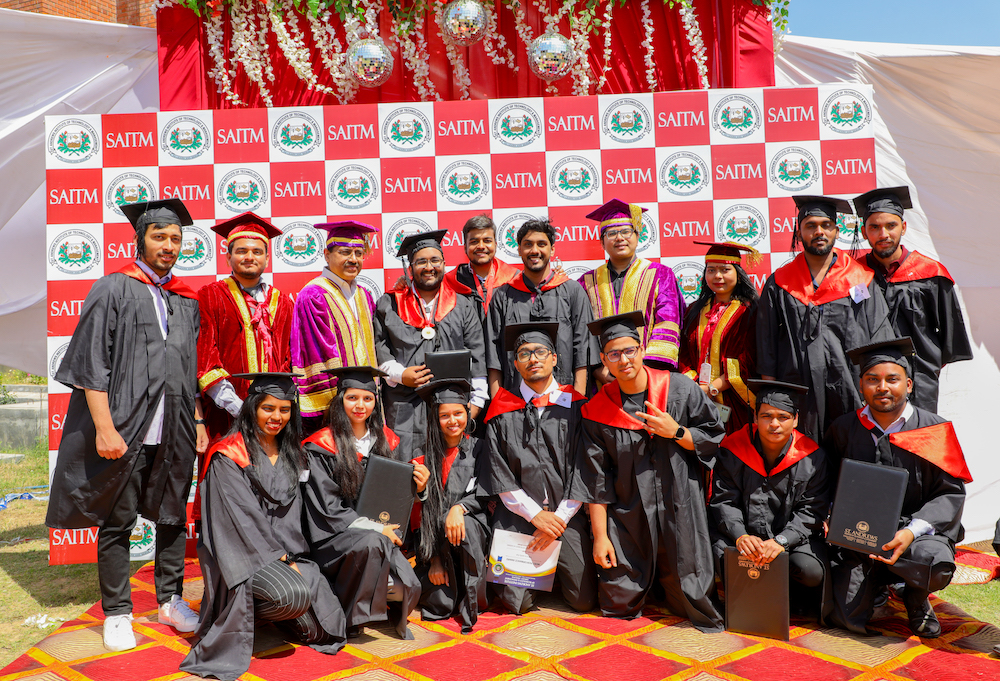
A Bachelor of Technology (B.Tech) is an undergraduate degree in engineering awarded after a four-year program. It equips students with a robust foundation in numerous engineering principles and practices through a curriculum that spans various disciplines. This comprehensive educational approach prepares students for diverse careers in technology and engineering sectors. Admission to these programs is typically through a B Tech Entrance Exam, assessing aptitude in foundational subjects like Mathematics, Physics, and Chemistry.
Here’s a brief overview:
Key Aspects of B Tech Course:
Duration:
Typically 4 years, divided into 8 semesters.
Core Subjects:
First Year: Basic sciences (Physics, Chemistry, Mathematics), Engineering drawing, Basic Electrical and Electronics Engineering, and introductory courses in computing and programming.
Second Year Onwards: Specialized subjects related to the chosen branch of engineering, such as Civil, Mechanical, Electrical, Computer Science, etc.
Specializations:
Computer Science Engineering (CSE)
Electrical Engineering (EE)
Mechanical Engineering (ME)
Civil Engineering (CE)
Electronics and Communication Engineering (ECE)
Information Technology (IT)
Chemical Engineering
Aeronautical Engineering
Biotechnology Engineering
Practical Exposure:
Laboratories: Hands-on experience through lab sessions for core subjects.
Workshops: Training in using various tools and machinery.
Projects: Individual and group projects to apply theoretical knowledge to practical problems.
Internships: Industrial training and internships to gain real-world experience.
This combination of activities ensures that students gain practical knowledge essential for their professional growth.
Skill Development:
Technical Skills: In-depth knowledge of engineering principles, software tools, and technologies relevant to the specialization.
Soft Skills: Communication, teamwork, project management, and problem-solving skills.
Research and Development: Encouragement to engage in research activities and innovative projects.
Career Opportunities:
Core Engineering Jobs: Roles in design, development, testing, and maintenance in sectors like manufacturing, construction, energy, and transportation.
IT and Software Jobs: Positions in software development, system analysis, data science, cybersecurity, and IT consultancy.
Higher Education: Opportunities to pursue M.Tech, MBA, or other advanced degrees.
Entrepreneurship: Starting own ventures in technology and engineering fields.
Admission Process:
Admissions are typically based on scores from national or state-level entrance exams, such as JEE Main and JEE Advanced.
Some private universities conduct their own entrance exams.
Curriculum Structure:
Semesters 1-2: Foundation courses in basic sciences, mathematics, introductory engineering concepts. These semesters lay the groundwork for the academic curriculum.
Semesters 3-6: Core engineering courses, specialization-specific subjects, lab work.
Semesters 7-8: Electives, advanced topics, major project work, internships.
B Tech Courses After 12th

After completing the 12th grade, students interested in pursuing a Bachelor of Technology (BTech) can choose from a variety of specialized courses.
Here are some popular B.Tech specializations and a brief overview of each:
Popular B.Tech Specializations:
Computer Science Engineering (CSE):
Focus: Software development, algorithms, data structures, artificial intelligence, machine learning, and cybersecurity.
Career Opportunities: Software developer, data scientist, IT consultant, cybersecurity analyst.
Career Prospects: Graduates can expect high demand in tech companies, startups, and research institutions.
Mechanical Engineering (ME):
Focus: Design, manufacturing, thermodynamics, materials science, and robotics.
Career Opportunities: Mechanical engineer, automotive engineer, aerospace engineer, product designer.
Career Prospects: Opportunities are abundant in industries like automotive, aerospace, and manufacturing.
Electrical Engineering (EE):
Focus: Electrical circuits, power systems, electronics, control systems, and telecommunications.
Career Opportunities: Electrical engineer, electronics engineer, power systems engineer, control systems engineer.
Career Prospects: Graduates can find roles in power generation companies, electronics firms, and telecommunications.
Civil Engineering (CE):
Focus: Structural engineering, construction management, geotechnical engineering, transportation engineering, and environmental engineering.
Career Opportunities: Civil engineer, structural engineer, construction manager, urban planner.
Career Prospects: There is a steady demand in construction, urban development, and infrastructure projects.
Electronics and Communication Engineering (ECE):
Focus: Communication systems, signal processing, microelectronics, and embedded systems.
Career Opportunities: Electronics engineer, communication engineer, embedded systems engineer, RF engineer.
Career Prospects: Graduates can work in telecommunications, consumer electronics, and embedded systems industries.
Information Technology (IT):
Focus: Information systems, network management, web technologies, databases, and cybersecurity.
Career Opportunities: IT manager, network administrator, database administrator, cybersecurity specialist.
Career Prospects: The IT sector offers diverse roles in network management, cybersecurity, and database administration.
Chemical Engineering:
Focus: Chemical processes, material science, process engineering, and biochemistry.
Career Opportunities: Chemical engineer, process engineer, materials engineer, pharmaceutical engineer.
Career Prospects: Graduates can pursue careers in pharmaceuticals, materials science, and process engineering.
Aeronautical Engineering:
Focus: Aircraft design, aerodynamics, propulsion systems, and avionics.
Career Opportunities: Aeronautical engineer, aerospace engineering, flight systems engineer, aircraft designer.
Career Prospects: Opportunities exist in aerospace companies, defense organizations, and research institutions.
Biotechnology Engineering:
Focus: Genetic engineering, molecular biology, bioinformatics, and bioprocess technology.
Career Opportunities: Biotechnologist, research scientist, bioinformatics specialist, pharmaceutical engineer.
Career Prospects: Graduates can work in biotechnology firms, research labs, and pharmaceutical companies.
Automobile Engineering:
Focus: Vehicle design, automotive electronics, engine systems, and manufacturing processes.
Career Opportunities: Automobile engineer, automotive designer, test engineer, production engineer.
Career Prospects: The automotive industry offers roles in design, testing, and production engineering.
Top B Tech Entrance Exams You Should Know About
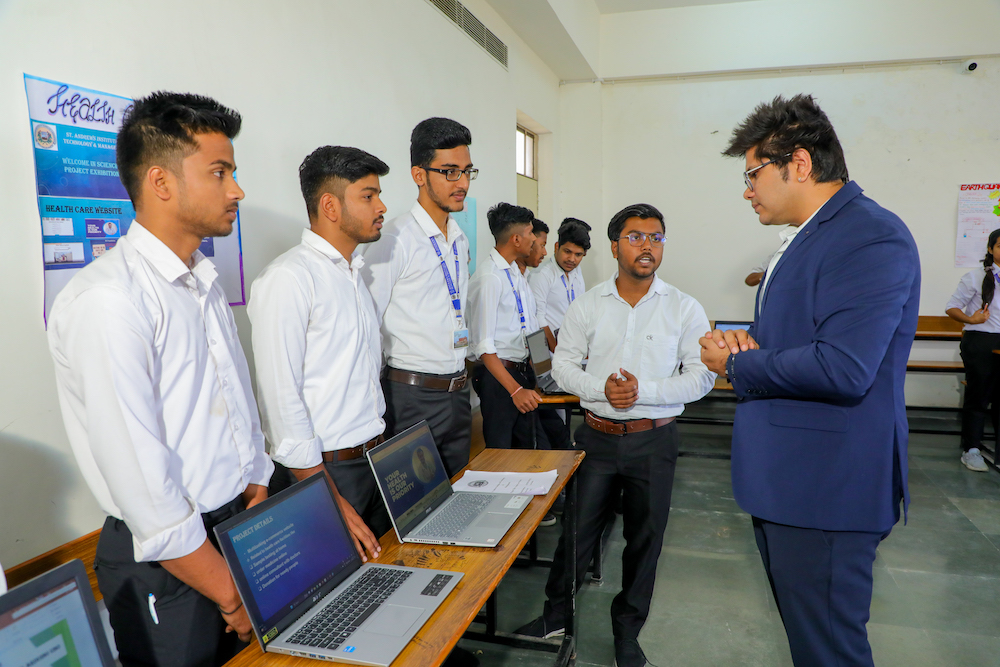
Here are some of the top competitive exams for engineering entrance in India that students should know about:
Joint Entrance Examination (JEE) Main
Conducted by: National Testing Agency (NTA)
Purpose: For admission to NITs, IIITs, and other centrally funded technical institutions.
Frequency: Twice a year (January and April)
Joint Entrance Examination (JEE) Advanced
Conducted by: One of the IITs on a rotational basis
Purpose: For admission to IITs
Eligibility: Top candidates from JEE Main
Birla Institute of Technology and Science Admission Test (BITSAT)
Conducted by: BITS Pilani
Purpose: For admission to BITS Pilani, Goa, and Hyderabad campuses
Frequency: Annually
VIT Engineering Entrance Exam (VITEEE)
Conducted by: VIT University
Purpose: For admission to VIT Vellore, Chennai, Bhopal, and Amravati campuses
Frequency: Annually
KIITEE (Kalinga Institute of Industrial Technology Entrance Exam)
Conducted by: KIIT University
Purpose: For admission to KIIT University
Frequency: Annually
WBJEE (West Bengal Joint Entrance Examination)
Conducted by: West Bengal Joint Entrance Examinations Board
Purpose: For admission to engineering colleges in West Bengal
Frequency: Annually
MHT CET (Maharashtra Common Entrance Test)
Conducted by: State Common Entrance Test Cell, Maharashtra
Purpose: For admission to engineering colleges in Maharashtra
Frequency: Annually
COMEDK UGET (Consortium of Medical, Engineering and Dental Colleges of Karnataka Under Graduate Entrance Test)
Conducted by: COMEDK
Purpose: For admission to engineering colleges in Karnataka
Frequency: Annually
State-Level B Tech Entrance Exam List with dates
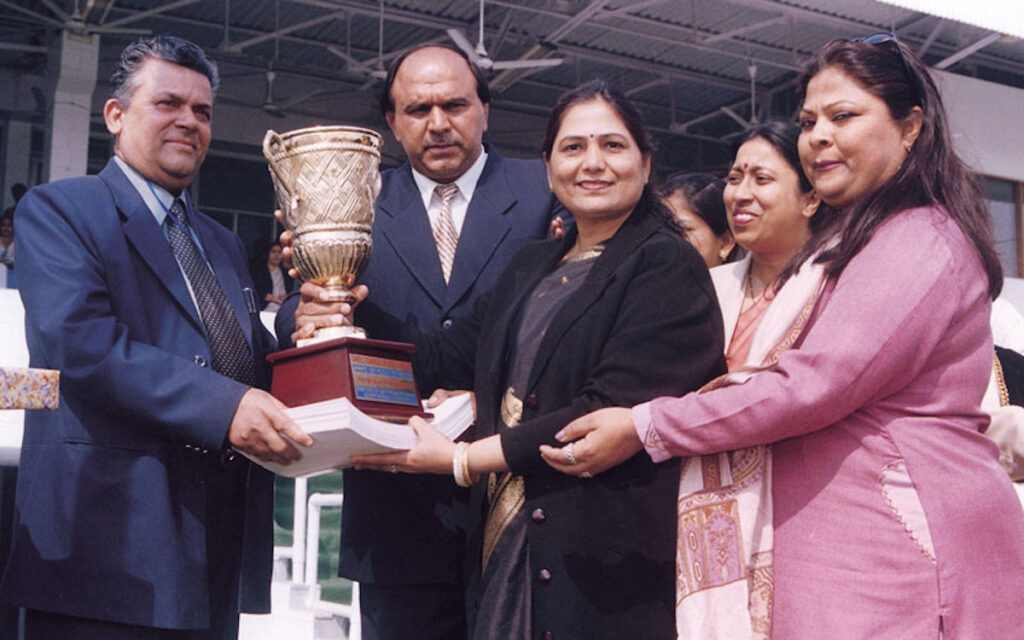
Here is a list of prominent state-level B.Tech entrance exams along with their typical dates:
Maharashtra Common Entrance Test (MHT CET)
Conducting Body: State Common Entrance Test Cell, Maharashtra
Typical Exam Date: May
Karnataka Common Entrance Test (KCET)
Conducting Body: Karnataka Examinations Authority (KEA)
Typical Exam Date: April/May
Telangana State Engineering, Agriculture and Medical Common Entrance Test (TS EAMCET)
Conducting Body: Jawaharlal Nehru Technological University, Hyderabad (JNTUH)
Typical Exam Date: May
Andhra Pradesh Engineering, Agriculture and Pharmacy Common Entrance Test (AP EAPCET)
Conducting Body: Jawaharlal Nehru Technological University, Kakinada (JNTUK)
Typical Exam Date: April
West Bengal Joint Entrance Examination (WBJEE)
Conducting Body: West Bengal Joint Entrance Examinations Board (WBJEEB)
Typical Exam Date: April
Gujarat Common Entrance Test (GUJCET)
Conducting Body: Gujarat Secondary and Higher Secondary Education Board (GSEB)
Typical Exam Date: April
Tamil Nadu Engineering Admissions (TNEA)
Conducting Body: Directorate of Technical Education (DoTE), Tamil Nadu
Typical Exam Date: No entrance exam, admissions based on Class 12 scores
Uttar Pradesh State Entrance Examination (UPSEE) / UPCET
Conducting Body: Dr. A.P.J. Abdul Kalam Technical University (AKTU)
Typical Exam Date: May
Kerala Engineering Architecture Medical Examination (KEAM)
Conducting Body: Commissioner of Entrance Examinations (CEE), Kerala
Typical Exam Date: April/May
Assam Combined Entrance Examination (Assam CEE)
Conducting Body: Assam Science and Technology University (ASTU)
Typical Exam Date: May
Bihar Combined Entrance Competitive Examination (BCECE)
Conducting Body: Bihar Combined Entrance Competitive Examination Board (BCECEB)
Typical Exam Date: April/May
Odisha Joint Entrance Examination (OJEE)
Conducting Body: Odisha Joint Entrance Examination Board (OJEEB)
Typical Exam Date: May
Haryana State Technical Education Society (HSTES)
Conducting Body: HSTES
Typical Exam Date: No entrance exam, admissions based on JEE Main scores
Punjab Technical University Combined Entrance Test (PTU CET)
Conducting Body: I.K. Gujral Punjab Technical University (IKGPTU)
Typical Exam Date: No entrance exam, admissions based on JEE Main scores
Chhattisgarh Pre-Engineering Test (CG PET)
Conducting Body: Chhattisgarh Professional Examination Board (CGPEB)
Typical Exam Date: May
Types of B Tech Entrance Exams in India
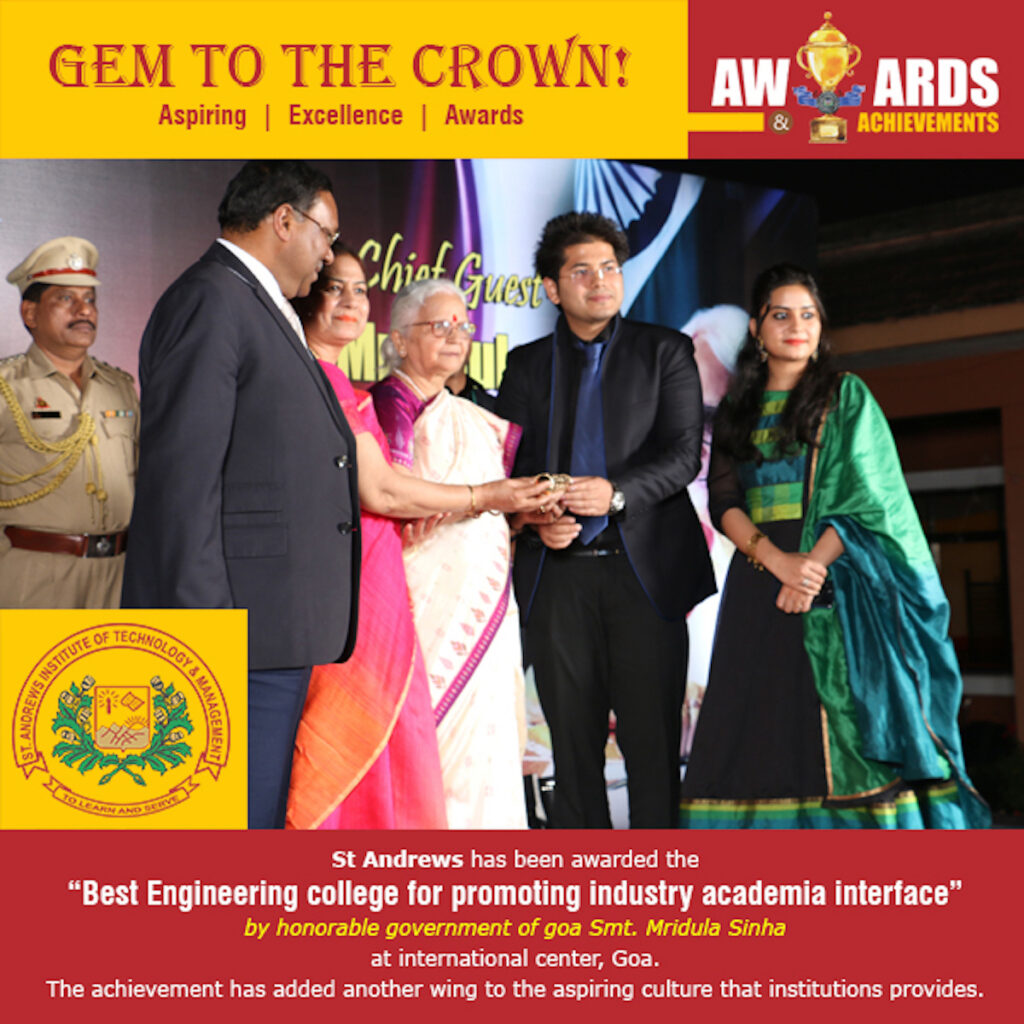
In India, Engineering entrance exam can be broadly classified into several categories based on their scope and the institutions they target.
Here’s a breakdown of the main types of top Engineering entrance exam:
National-Level Entrance Exams
Purpose: These exams are conducted for admission to various prestigious engineering institutions across India, including IITs, NITs, and other centrally funded technical institutions.
Examples:
Joint Entrance Examination (JEE) Main: For admission to NITs, IIITs, and other central and state-funded institutions.
Joint Entrance Examination (JEE) Advanced: For admission to IITs, only for top candidates from JEE Main.
BITSAT: For admission to BITS Pilani, BITS Goa, and BITS Hyderabad.
State-Level Entrance Exams
Purpose: These exams are conducted for admission to btech colleges within a specific state. They may be used for admission to both government and private btech colleges.
Examples:
MHT CET: For admission to btech colleges in Maharashtra.
TS EAMCET: For admission to btech colleges in Telangana.
AP EAPCET: For admission to btech colleges in Andhra Pradesh.
WBJEE: For admission to btech colleges in West Bengal.
KCET: For admission to btech colleges in Karnataka.
University-Specific Entrance Exams
Purpose: These exams are conducted by individual universities for admission to their engineering programs. They are typically used by private universities and deemed-to-be universities.
Examples:
VITEEE: For admission to VIT University.
KIITEE: For admission to KIIT University.
Institute-Specific Entrance Exams
Purpose: These exams are conducted by specific institutes for their own admissions. They are usually used by private or autonomous btech colleges.
Examples:
Shiv Nadar University Entrance Exam: For admission to engineering programs at Shiv Nadar University.
Amrita Entrance Examination – Engineering (AEEE): For admission to Amrita Vishwa Vidyapeetham.
Jaypee Institute of Information Technology (JIIT) Entrance Exam: For admission to JIIT.
Common Entrance Tests
Purpose: These exams, known as common entrance tests, are conducted jointly by multiple institutions or states to offer a common admission process.
Examples:
JEE Main: Acts as a common entrance test for several engineering colleges.
UPSEE (UPCET): Used for admissions to various engineering colleges in Uttar Pradesh.
Merit-Based Admissions
Purpose: These are not entrance exams but merit-based admissions based on Class 12 marks or other criteria.
Examples:
TNEA: Admissions to Tamil Nadu engineering colleges are based on Class 12 scores and not an entrance exam.
Eligibility Criteria for B Tech Entrance Exams
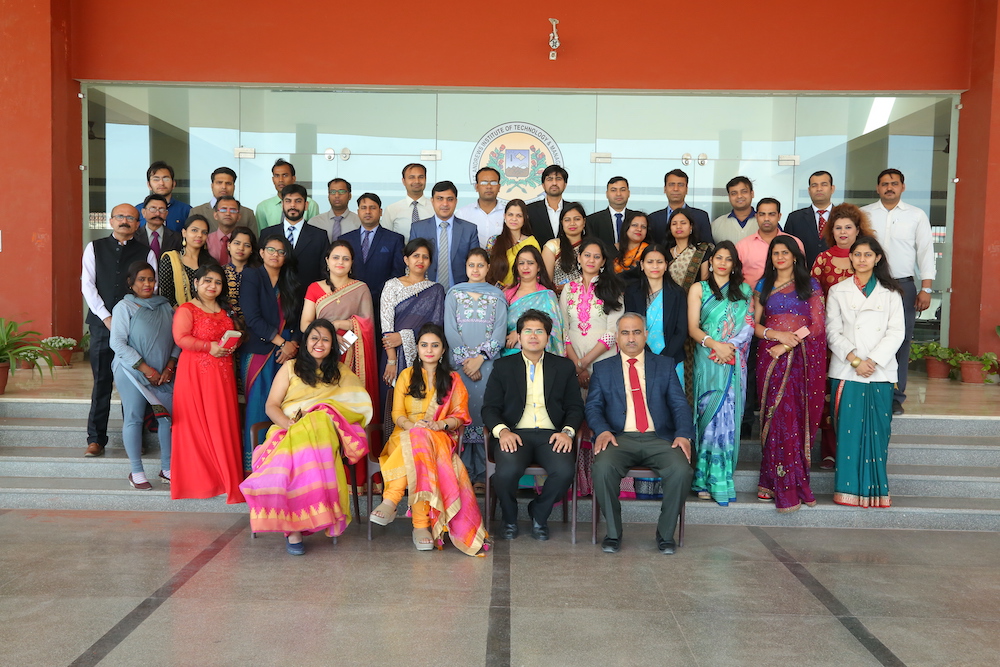
The eligibility criteria for B.Tech entrance exams in India can vary depending on the specific exam and the institution conducting it. However, there are some common requirements and qualifications that most exams share.
Here’s a general overview of the eligibility criteria to pursue Btech entrance exams :
Educational Qualification
Class 12 Completion: Candidates should have completed their 10+2 (or equivalent) examination with Physics, Chemistry, and Mathematics (PCM) as core subjects. Some exams may also accept Biology or other subjects depending on the specialization.
Minimum Marks: Most exams require candidates to have secured a minimum percentage of marks in their Class 12 exams. This is usually around 50% to 60% for general category students, with a possible relaxation for reserved categories (SC/ST/OBC).
Age Limit
Age Criteria: There may be an upper age limit for certain entrance exams. Generally, candidates should be under 21 to 23 years of age, although this can vary. For instance, JEE Main has no specific age limit, while some state exams or private university exams might have age restrictions.
Nationality
Citizenship: Most B.Tech entrance exams are open to Indian citizens. Some exams also have provisions for NRIs (Non-Resident Indians) and foreign students, but they may need to meet additional criteria or follow separate admission processes.
Domicile Requirements
State-Level Exams: For state-level entrance exams, candidates may need to fulfill domicile requirements, which means they should be residents of the state or meet specific criteria set by the state government.
Number of Attempts
Attempt Limits: Some entrance exams have a limit on the number of attempts a candidate can make. For example, JEE Main allows candidates to appear for the exam a maximum of three times in consecutive years.
Specific Exam Criteria
JEE Main and Advanced:
Educational Qualification: 10+2 with PCM.
Age Limit: No specific age limit.
Attempts: Three attempts for JEE Main.
Eligibility for JEE Advanced: Top 2.5 lakh candidates from JEE Main.
BITSAT:
Educational Qualification: 10+2 with PCM.
Minimum Marks: 75% in PCM with at least 60% in each subject.
VITEEE:
Educational Qualification: 10+2 with PCM.
Minimum Marks: 60% in PCM.
MHT CET:
Educational Qualification: 10+2 with PCM.
Domicile: Candidate should be a resident of Maharashtra or meet domicile criteria.
TS EAMCET:
Educational Qualification: 10+2 with PCM.
Domicile: Candidate should be a resident of Telangana or meet domicile criteria.
AP EAPCET:
Educational Qualification: 10+2 with PCM.
Domicile: Candidate should be a resident of Andhra Pradesh or meet domicile criteria.
Additional Requirements
Medical Fitness: Some institutions may require candidates to meet specific medical fitness criteria, especially for programs related to engineering and technology.
Entrance Test Performance: Performance in the entrance test itself is crucial. Candidates need to achieve a minimum qualifying score or rank to be considered for admission.
Syllabus of JEE Main Exam & JEE Advanced Exam
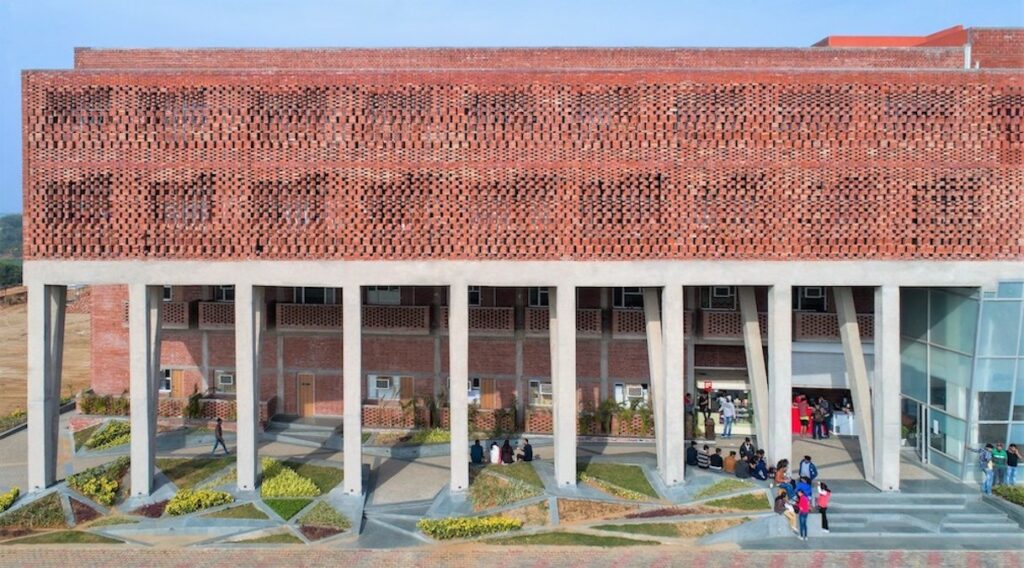
The exam syllabus for JEE Main and JEE Advanced is largely based on the NCERT curriculum for Classes 11 and 12. While both exams cover similar topics, JEE Advanced typically involves more advanced and complex problems.
Here’s a detailed breakdown:
JEE Main Syllabus:
Physics:
Class 11: Physical World and Measurement, Kinematics, Laws of Motion, Work, Energy, and Power, Motion of System of Particles and Rigid Body, Gravitation, Properties of Bulk Matter, Thermodynamics, Behaviour of Perfect Gas and Kinetic Theory, Oscillations and Waves.
Class 12: Electrostatics, Current Electricity, Magnetic Effects of Current and Magnetism, Electromagnetic Induction and Alternating Currents, Electromagnetic Waves, Optics, Dual Nature of Matter and Radiation, Atoms and Nuclei, Electronic Devices.
Chemistry:
Class 11: Some Basic Concepts of Chemistry, Structure of Atom, Classification of Elements and Periodicity in Properties, Chemical Bonding and Molecular Structure, States of Matter: Gases and Liquids, Thermodynamics, Equilibrium, Redox Reactions, Hydrogen, s-Block Element (Alkali and Alkaline Earth Metals), Some p-Block Elements, Organic Chemistry – Some Basic Principles and Techniques, Hydrocarbons, Environmental Chemistry.
Class 12: Solid State, Solutions, Electrochemistry, Chemical Kinetics, Surface Chemistry, General Principles and Processes of Isolation of Elements, p-Block Elements, d- and f-Block Elements, Coordination Compounds, Haloalkanes and Haloarenes, Alcohols, Phenols and Ethers, Aldehydes, Ketones and Carboxylic Acids, Organic Compounds Containing Nitrogen, Biomolecules, Polymers, Chemistry in Everyday Life.
Mathematics:
Class 11: Sets, Relations and Functions, Trigonometric Functions, Complex Numbers and Quadratic Equations, Linear Inequalities, Permutations and Combinations, Binomial Theorem, Sequences and Series, Straight Lines, Conic Sections, Introduction to Three-Dimensional Geometry, Limits and Derivatives, Mathematical Reasoning, Statistics, Probability.
Class 12: Relations and Functions, Inverse Trigonometric Functions, Matrices and Determinants, Continuity and Differentiability, Applications of Derivatives, Integrals, Applications of Integrals, Differential Equations, Vector Algebra, Three Dimensional Geometry, Linear Programming, Probability.
JEE Advanced Syllabus:
Physics:
Class 11: Physical World and Measurement, Kinematics, Laws of Motion, Work, Energy, and Power, Motion of System of Particles and Rigid Body, Gravitation, Properties of Bulk Matter, Thermodynamics, Behaviour of Perfect Gas and Kinetic Theory, Oscillations and Waves.
Class 12: Electrostatics, Current Electricity, Magnetic Effects of Current and Magnetism, Electromagnetic Induction and Alternating Currents, Electromagnetic Waves, Optics, Dual Nature of Matter and Radiation, Atoms and Nuclei, Electronic Devices.
Advanced Topics: Advanced mechanics (e.g., dynamics, rotational motion), Advanced optics (e.g., interference, diffraction), Advanced electromagnetism (e.g., electromagnetic waves).
Chemistry:
Class 11: Some Basic Concepts of Chemistry, Structure of Atom, Classification of Elements and Periodicity in Properties, Chemical Bonding and Molecular Structure, States of Matter: Gases and Liquids, Thermodynamics, Equilibrium, Redox Reactions, Hydrogen, s-Block Element (Alkali and Alkaline Earth Metals), Some p-Block Elements, Organic Chemistry – Some Basic Principles and Techniques, Hydrocarbons, Environmental Chemistry.
Class 12: Solid State, Solutions, Electrochemistry, Chemical Kinetics, Surface Chemistry, General Principles and Processes of Isolation of Elements, p-Block Elements, d- and f-Block Elements, Coordination Compounds, Haloalkanes and Haloarenes, Alcohols, Phenols and Ethers, Aldehydes, Ketones and Carboxylic Acids, Organic Compounds Containing Nitrogen, Biomolecules, Polymers, Chemistry in Everyday Life.
Advanced Topics: Coordination Chemistry (more in-depth), Organic reaction mechanisms and their applications.
Mathematics:
Class 11: Sets, Relations and Functions, Trigonometric Functions, Complex Numbers and Quadratic Equations, Linear Inequalities, Permutations and Combinations, Binomial Theorem, Sequences and Series, Straight Lines, Conic Sections, Introduction to Three-Dimensional Geometry, Limits and Derivatives, Mathematical Reasoning, Statistics, Probability.
Class 12: Relations and Functions, Inverse Trigonometric Functions, Matrices and Determinants, Continuity and Differentiability, Applications of Derivatives, Integrals, Applications of Integrals, Differential Equations, Vector Algebra, Three Dimensional Geometry, Linear Programming, Probability.
Advanced Topics: Advanced algebra (e.g., complex numbers, polynomial equations), Advanced calculus (e.g., multiple integrals, vector calculus), Advanced coordinate geometry.
Syllabus of MHT CET
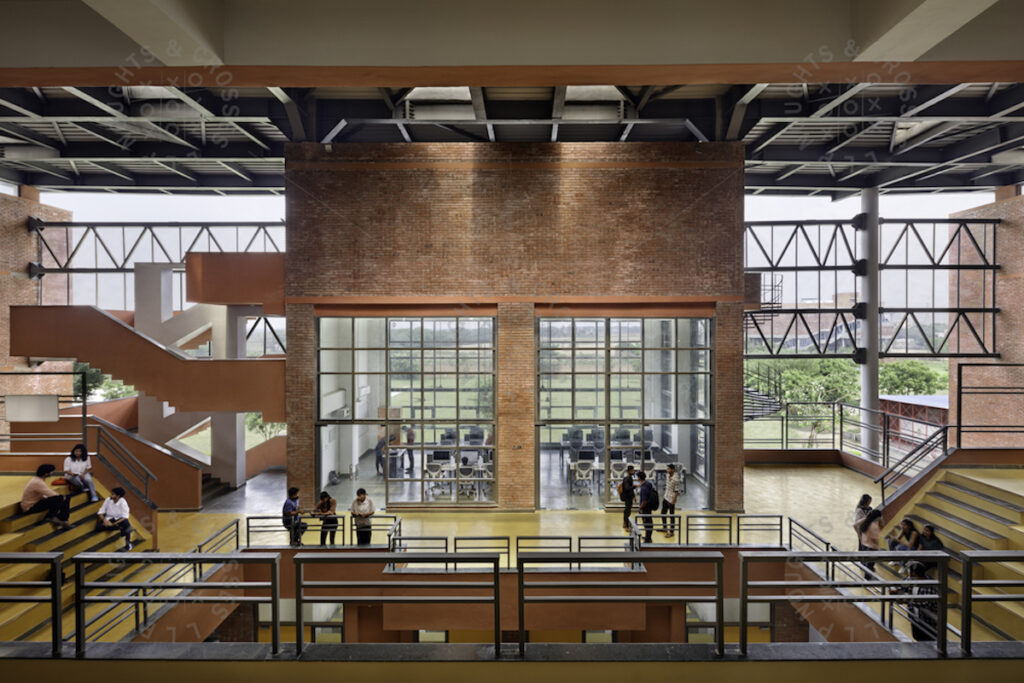
The MHT-CET (Maharashtra Common Entrance Test) exam syllabus for B.Tech admissions primarily covers topics from Physics, Chemistry, and Mathematics as per the Class 11 and 12 curricula.
Here’s a detailed breakdown:
Physics
Class 11:
Physical World and Measurement: Units and measurements, motion in a straight line, motion in a plane, laws of motion, work, energy, and power.
Kinematics: Motion, velocity, acceleration, and equations of motion.
Laws of Motion: Newton’s laws of motion, friction, and circular motion.
Work, Energy, and Power: Work-energy theorem, kinetic energy, potential energy, and power.
Motion of System of Particles and Rigid Body: Center of mass, rotational motion, and angular momentum.
Gravitation: Universal law of gravitation, gravitation potential energy, and acceleration due to gravity.
Properties of Bulk Matter: Elasticity, fluid mechanics, and thermal properties.
Thermodynamics: Thermodynamic processes, laws of thermodynamics, and entropy.
Kinetic Theory: Molecular nature of matter, kinetic theory of gases.
Oscillations and Waves: Simple harmonic motion, wave motion, and sound waves.
Class 12:
Electrostatics: Coulomb’s law, electric field and potential, capacitors, and dielectrics.
Current Electricity: Ohm’s law, Kirchhoff’s laws, electrical circuits, and resistors.
Magnetic Effects of Current and Magnetism: Biot-Savart law, Ampere’s law, and magnetic properties of materials.
Electromagnetic Induction and Alternating Currents: Faraday’s laws, self and mutual induction, AC circuits.
Electromagnetic Waves: Propagation of electromagnetic waves and their applications.
Optics: Ray optics, wave optics, interference, and diffraction.
Dual Nature of Matter and Radiation: Photoelectric effect, de Broglie’s hypothesis.
Atoms and Nuclei: Atomic models, nuclear reactions, and radioactivity.
Chemistry
Class 11:
Some Basic Concepts of Chemistry: Atomic structure, chemical bonding, and periodic table.
Structure of Atom: Quantum numbers, atomic orbitals, and electronic configuration.
Classification of Elements and Periodicity in Properties: Periodic trends and classification.
Chemical Bonding and Molecular Structure: Covalent bonding, VSEPR theory, hybridization.
States of Matter: Gases and liquids, ideal gas laws.
Thermodynamics: Thermodynamic processes, enthalpy, and entropy.
Equilibrium: Chemical and ionic equilibrium, Le Chatelier’s principle.
Redox Reactions: Oxidation-reduction, electrochemical cells.
Hydrogen: Isotopes, properties, and uses.
s-Block Elements: Alkali and alkaline earth metals.
Some p-Block Elements: Properties and uses of elements.
Organic Chemistry: Basics of organic chemistry, hydrocarbons, and functional groups.
Class 12:
Solid State: Crystal structure, packing, and defects.
Solutions: Types of solutions, colligative properties.
Electrochemistry: Electrochemical cells, electrode potential, and electrolysis.
Chemical Kinetics: Rate of reactions, order, and activation energy.
Surface Chemistry: Adsorption, catalysis.
General Principles and Processes of Isolation of Elements: Metallurgy and extraction.
p-Block Elements: Properties and compounds.
d and f-Block Elements: Transition elements and coordination compounds.
Organic Compounds Containing Oxygen: Alcohols, phenols, and ethers.
Organic Compounds Containing Nitrogen: Amines, diazonium salts.
Biomolecules: Carbohydrates, proteins, and nucleic acids.
Polymers: Types of polymers, polymerization.
Environmental Chemistry: Pollution, green chemistry.
Mathematics
Class 11:
Sets, Relations, and Functions: Basic concepts of sets, relations, and functions.
Complex Numbers and Quadratic Equations: Complex numbers, quadratic equations, and their roots.
Matrices and Determinants: Matrix operations, determinants, and applications.
Permutations and Combinations: Counting principles, permutations, and combinations.
Binomial Theorem: Binomial expansion and properties.
Sequences and Series: Arithmetic and geometric progressions, and series.
Straight Lines: Equation of lines, slope, and intercept.
Conic Sections: Parabola, ellipse, and hyperbola.
Introduction to Three-Dimensional Geometry: Coordinates and distances in 3D space.
Limits and Derivatives: Basic concepts of calculus, limits, and differentiation.
Integrals: Basic integration techniques and applications.
Differential Equations: Introduction to differential equations.
Class 12:
Relations and Functions: Types of functions, inverses, and compositions.
Inverse Trigonometric Functions: Definitions and properties.
Matrices: Types of matrices, operations, and determinants.
Determinants: Properties and applications.
Continuity and Differentiability: Concepts of continuity and differentiability.
Application of Derivatives: Maxima and minima, curve sketching.
Integrals: Techniques and applications of integration.
Differential Equations: First order and second order differential equations.
Vectors: Scalar and vector products, and applications.
Three-Dimensional Geometry: Planes, lines, and spheres.
Probability: Basic probability, random variables, and distributions.
Statistics: Measures of central tendency and dispersion.
Admission in B Tech Colleges without Entrance exam
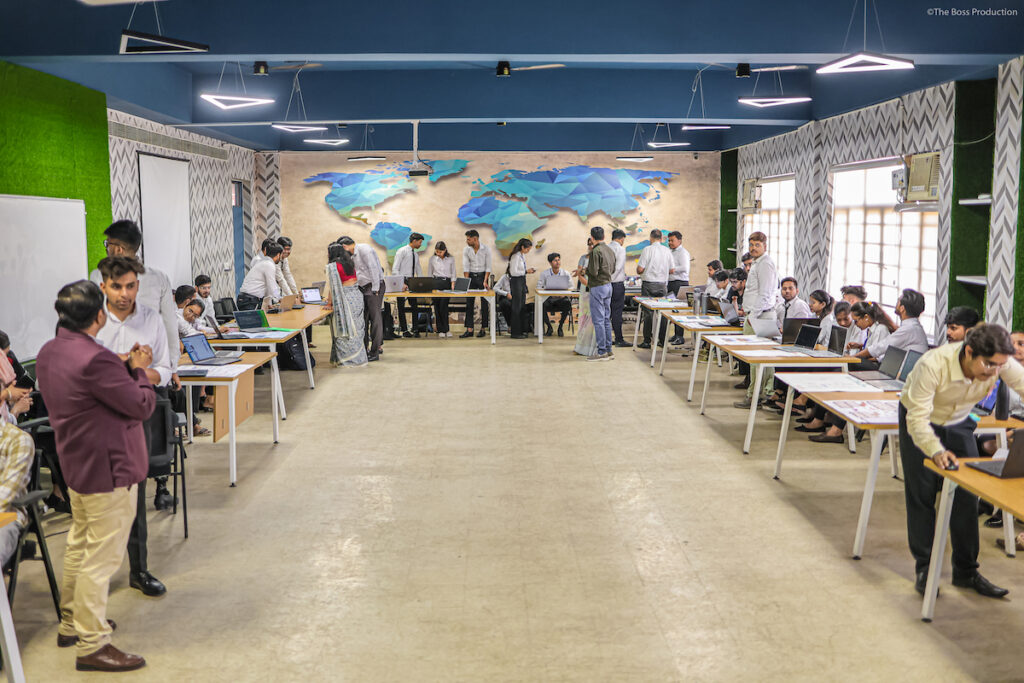
Admission to Bachelor of Technology (BTech) programs without an entrance exam is possible at some private colleges and universities.
Here are a few ways you can secure admission:
Direct Admission: Some private institutions offer direct admission based on your Class 12th board exam scores. They might have their own criteria and cut-offs for this.
Management Quota: Many private engineering colleges have a management quota under which a certain percentage of seats are reserved. Admission through this quota often does not require an entrance exam but may involve higher fees.
Merit-Based Admission: Some colleges consider your academic performance in Class 12th (or equivalent) exams for admission. They may not require an entrance exam but may have their own merit list.
Institute-Specific Tests: Some institutions have their own entrance tests or evaluation processes that are different from the common national-level exams.
State-Level Exams: In some states, there are specific entrance exams or counseling processes that may include or exclude certain colleges from participating. Some colleges in these states might offer admission based on their own criteria.
Alternative Qualifications: Some colleges may accept students based on alternative qualifications or certifications.
Tips to Crack B Tech Entrance Exams on the First Attempt
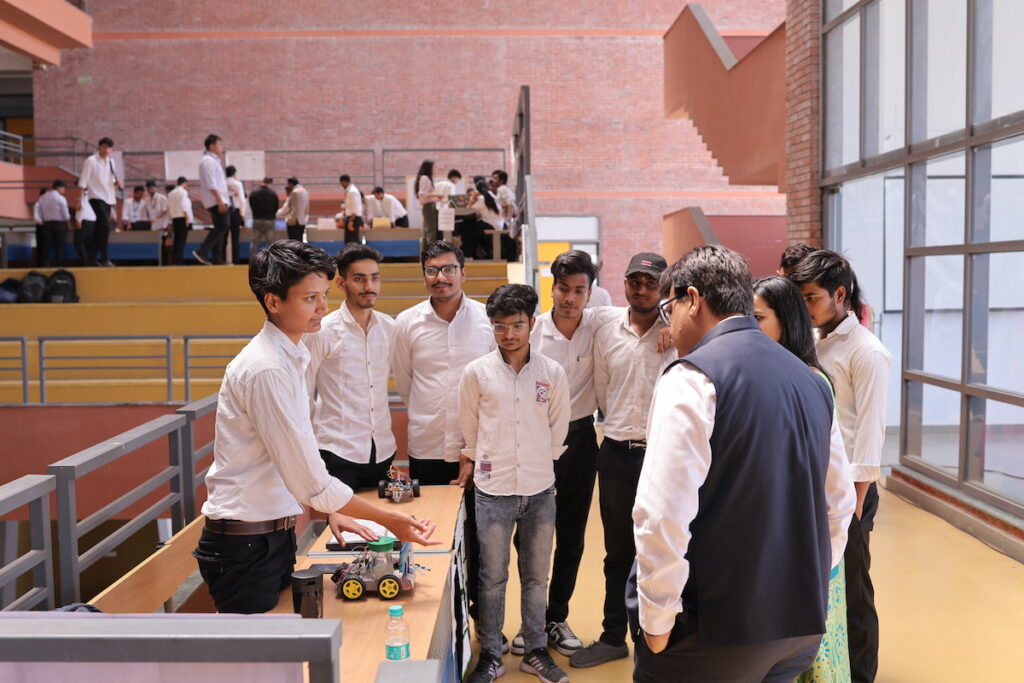
Cracking B.Tech entrance exams on your first attempt requires a strategic approach and effective preparation. A well-thought-out preparation strategy is essential to navigate through the complexities of these exams.
Here are some tips to help you succeed:
Understand the Exam Pattern:
Familiarize yourself with the structure of the exam, including the number of sections, types of questions (MCQs, subjective), and the marking scheme.
Create a Study Plan:
Develop a detailed study schedule that covers all subjects and topics. Allocate more time to subjects or areas where you are weaker.
Gather Study Materials:
Use standard textbooks and reference materials. Make sure you have access to previous years’ question papers and sample papers.
Focus on Core Subjects:
For most B.Tech entrance exams, core subjects include Mathematics, Physics, and Chemistry. Ensure that you have a strong grasp of these subjects.
Practice Regularly:
Solve as many practice papers and mock tests as possible. This helps in understanding the exam format and improving time management.
Revise Frequently:
Regular revision is crucial to retain information. Set aside time for periodic reviews of what you’ve studied.
Use Online Resources:
Utilize online platforms for video tutorials, practice tests, and interactive quizzes. These can provide additional explanations and practice opportunities.
Take Care of Your Health:
Maintain a healthy lifestyle with proper nutrition, exercise, and sleep. A healthy body contributes to a sharp mind.
Stay Positive and Manage Stress:
Keep a positive attitude and manage stress through relaxation techniques or hobbies. Stress can affect your performance, so it’s important to stay calm and focused.
Seek Help When Needed:
If you’re struggling with a particular topic, don’t hesitate to ask teachers, join study groups, or seek help from tutors.
Time Management During the Exam:
Practice time management skills during mock tests. Allocate time to each section and question, and avoid spending too much time on any single question.
Stay Updated:
For exams that include current affairs or general knowledge sections, stay updated with recent developments in science, technology, and general news.
Common Mistakes to Avoid in B Tech Entrance Exams
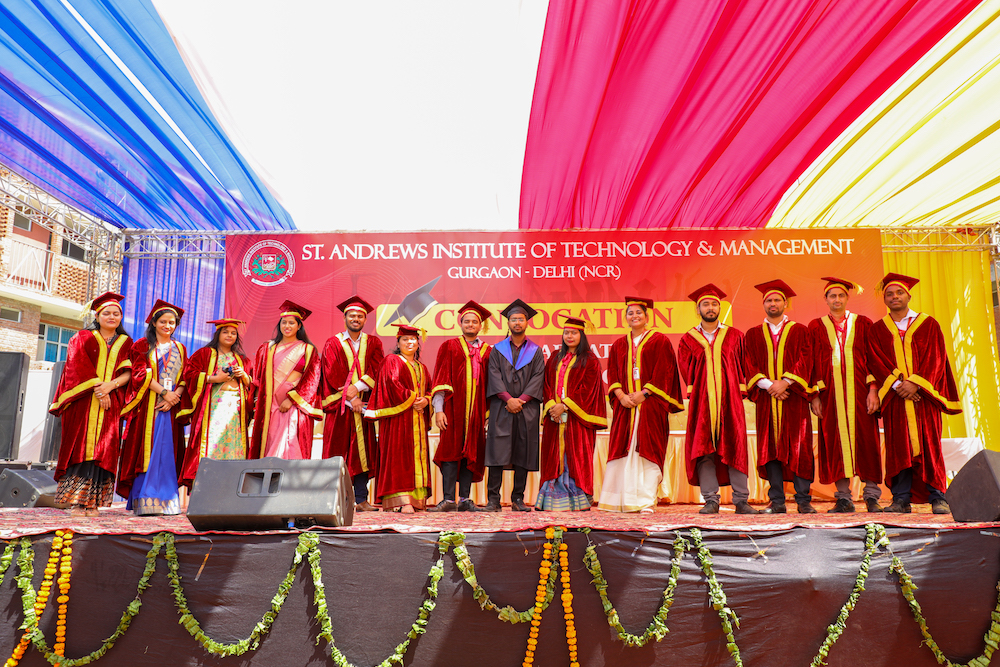
Avoiding common mistakes can significantly boost your performance in B Tech Entrance Exam. Here are some pitfalls to watch out for:
Neglecting the Syllabus:
Ensure you cover the entire syllabus. Focusing only on certain topics can leave you unprepared for questions outside of your comfort zone.
Ignoring Exam Pattern:
Failing to understand the exam pattern, such as the type of questions, the marking scheme, and the time allocated for each section, can lead to mismanagement during the test.
Skipping Practice:
Not practicing enough with sample papers and mock tests can affect your familiarity with the exam format and time management.
Overlooking Revision:
Avoid cramming all the information at the last minute. Regular revision is crucial to reinforce concepts and improve recall.
Poor Time Management:
Spending too much time on difficult questions or sections can leave you with insufficient time for other parts of the exam. Practice managing your time effectively.
Neglecting Health and Well-being:
Ignoring your physical and mental health can negatively impact your performance. Ensure you get enough rest, eat well, and manage stress effectively.
Over-reliance on One Study Resource:
Relying solely on one textbook or study material can limit your understanding. Use multiple resources to get a well-rounded preparation.
Underestimating the Importance of Accuracy:
Prioritizing speed over accuracy can lead to mistakes. Focus on solving questions correctly rather than just attempting to complete them quickly.
Failing to Follow Instructions:
Not reading or following the instructions on the question paper or answer sheet can lead to avoidable errors.
Not Practicing Previous Years’ Papers:
Ignoring previous years’ question papers means missing out on understanding the types of questions that frequently appear. Practice these to get a sense of the exam’s difficulty and question styles.
Lack of Strategic Approach:
Failing to develop a strategy for tackling different sections can lead to inefficiency. Plan how to approach each section based on your strengths and weaknesses.
Overlooking Negative Marking:
Be aware of the negative marking scheme. Guessing answers without a proper strategy can decrease your overall score.
Ignoring Feedback:
If you receive feedback from mock tests or practice sessions, use it constructively to improve. Ignoring feedback can prevent you from addressing weaknesses.
Understanding the B Tech Entrance Exam Pattern and Marking Scheme
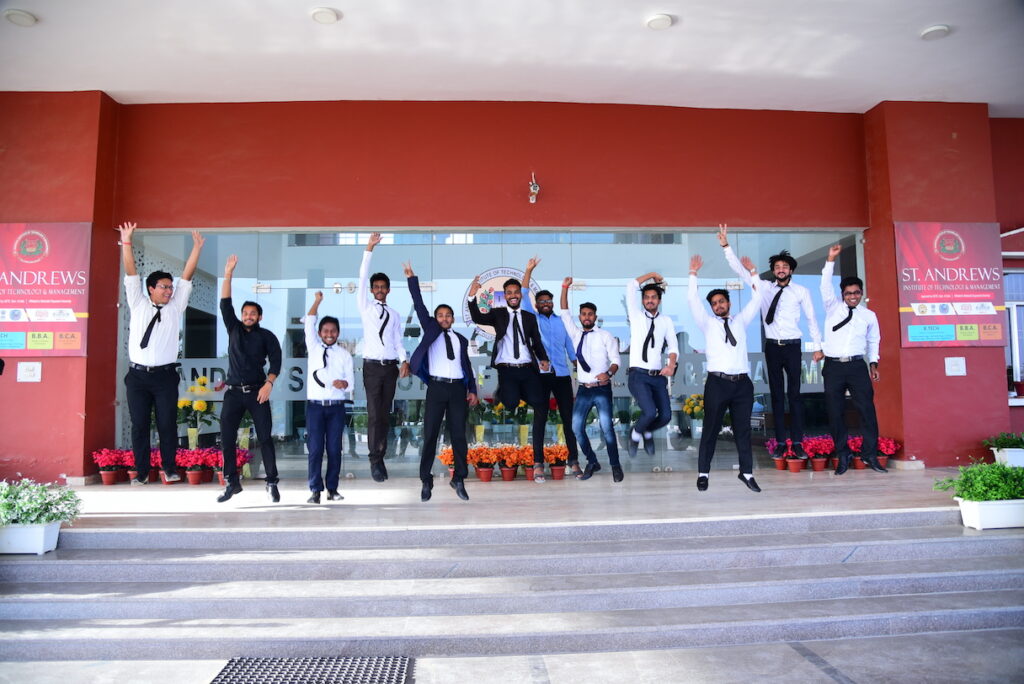
Understanding the exam pattern and marking scheme of a B.Tech entrance exam is crucial for effective preparation.
Here’s a general overview of what to expect:
Exam Pattern
Sections:
Mathematics: Usually consists of questions on algebra, calculus, coordinate geometry, and trigonometry.
Physics: Includes questions on mechanics, thermodynamics, optics, electromagnetism, and modern physics.
Chemistry: Covers physical chemistry, inorganic chemistry, and organic chemistry.
Types of Questions:
Multiple Choice Questions (MCQs): Most B.Tech entrance exams feature MCQs with four or five options. You need to select the correct one.
Numerical Type Questions: Some exams might include questions requiring calculations and numerical answers.
Duration:
The duration of the exam typically ranges from 2 to 3 hours.
Total Number of Questions:
This varies between exams but usually ranges from 100 to 200 questions.
Mode of Exam:
Exams can be either offline (pen-and-paper based) or online (computer-based).
Marking Scheme
Positive Marking:
Correct Answer: Generally, each correct answer is awarded 1 to 4 marks, depending on the exam.
Negative Marking:
Incorrect Answer: For every incorrect answer, a certain number of marks (usually 0.25 to 1 mark) may be deducted.
Unattempted Questions:
Typically, no marks are awarded or deducted for questions that are left unanswered.
Total Marks:
The total marks of the exam are usually proportional to the number of questions. For example, if there are 200 questions and each correct answer gives 1 mark, the total is 200 marks.
Examples of Popular B.Tech Entrance Exams
JEE Main:
Sections: Physics, Chemistry, Mathematics
Questions: 90 (30 from each subject)
Marks: 4 marks for each correct answer, -1 mark for each incorrect answer
JEE Advanced:
Sections: Physics, Chemistry, Mathematics
Questions: Varies, typically more complex than JEE Main
Marks: Varies by question type; includes MCQs and numerical questions
BITSAT:
Sections: Physics, Chemistry, Mathematics, English, Logical Reasoning
Questions: 150
Marks: 3 marks for each correct answer, -1 mark for each incorrect answer
VITEEE:
Sections: Physics, Chemistry, Mathematics/Biology, English
Questions: 125
Marks: 1 mark for each correct answer, no negative marking
Important Dates and Deadlines for B Tech Entrance Exams

The important dates and deadlines for B.Tech entrance exam typically include the following:
Application Dates
Start Date: Usually, applications begin in December or January.
End Date: Applications often close in March or April. Some exams may have extended deadlines or multiple phases.
Admit Card Release
Date: Admit cards are usually released a few weeks before the exam date, often in March or April.
Exam Dates
JEE Main: Typically held in January (Session 1) and April (Session 2) for the year. Specific dates can vary.
JEE Advanced: Usually held in June, a few weeks after JEE Main results are announced.
BITSAT: Often conducted in April or May, with multiple test dates available.
VITEEE: Usually conducted in April, with specific dates announced in advance.
Other State/Institutional Exams: Dates vary by state and institution. Exams might be held between April and June.
Result Announcements
JEE Main: Results are typically announced in February for the January session and in May for the April session.
JEE Advanced: Results are generally announced in June.
BITSAT: Results are usually declared in May or June.
VITEEE: Results are typically released in April or May.
Counseling and Admission Dates
JEE Main: Counseling usually begins in June or July through the Joint Seat Allocation Authority (JoSAA) or other participating bodies.
JEE Advanced: Counseling generally starts in June or July through the Joint Admission Board (JAB).
BITSAT: Admissions and counseling details are usually updated on the BITS website post-results.
VITEEE: Counseling and admission schedules are updated on the VIT website after the results are declared.
Last Date for Fee Payment and Document Submission
JEE Main & Advanced: Dates vary, but typically occur soon after the counseling process begins.
BITSAT: Specific dates are announced by BITS for fee payment and document submission.
VITEEE: Details are provided by VIT after the results and counseling process.
B Tech Entrance Exams Difficulty Level
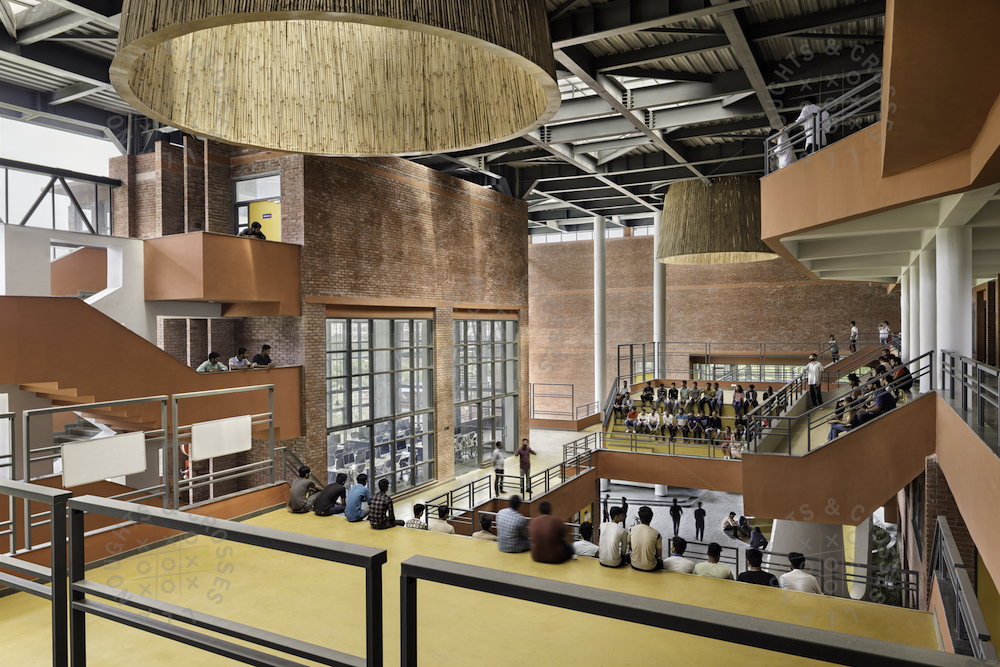
The difficulty level of the B Tech Entrance Exam can vary based on several factors, such as the specific exam, the level of competition, and how well you have prepared.
Here’s a general overview of the difficulty levels for some of the major B.Tech entrance exams in India:
JEE Main
Difficulty Level: Moderate to High
Details: JEE Main tests your knowledge of Physics, Chemistry, and Mathematics from Class 11 and 12. It is considered moderately difficult but manageable with consistent preparation. The questions can range from straightforward to challenging.
JEE Advanced
Difficulty Level: High
Details: JEE Advanced is more challenging than JEE Main and tests a deeper understanding of concepts. The questions are often complex and require strong problem-solving skills. It’s considered one of the most difficult engineering entrance exams in India.
BITSAT (Birla Institute of Technology and Science Admission Test)
Difficulty Level: Moderate to High
Details: BITSAT is known for its time-bound nature, requiring quick problem-solving skills. The difficulty level is generally moderate, but the exam is challenging due to the speed required to answer questions accurately.
VITEEE (VIT Engineering Entrance Examination)
Difficulty Level: Moderate
Details: VITEEE is relatively less challenging compared to JEE Main and JEE Advanced. The questions are based on Class 11 and 12 syllabi and are generally straightforward but require good time management.
State-Level Engineering Entrance Exams
Difficulty Level: Varies
Examples:
MHT-CET (Maharashtra Common Entrance Test): Moderate
KCET (Karnataka Common Entrance Test): Moderate
AP EAMCET (Andhra Pradesh Engineering, Agriculture, and Medical Common Entrance Test): Moderate
Details: The difficulty of state-level exams can vary. They generally cover Class 11 and 12 syllabus and might be slightly less challenging compared to national-level exams but can still be competitive.
Top B Tech Colleges in India
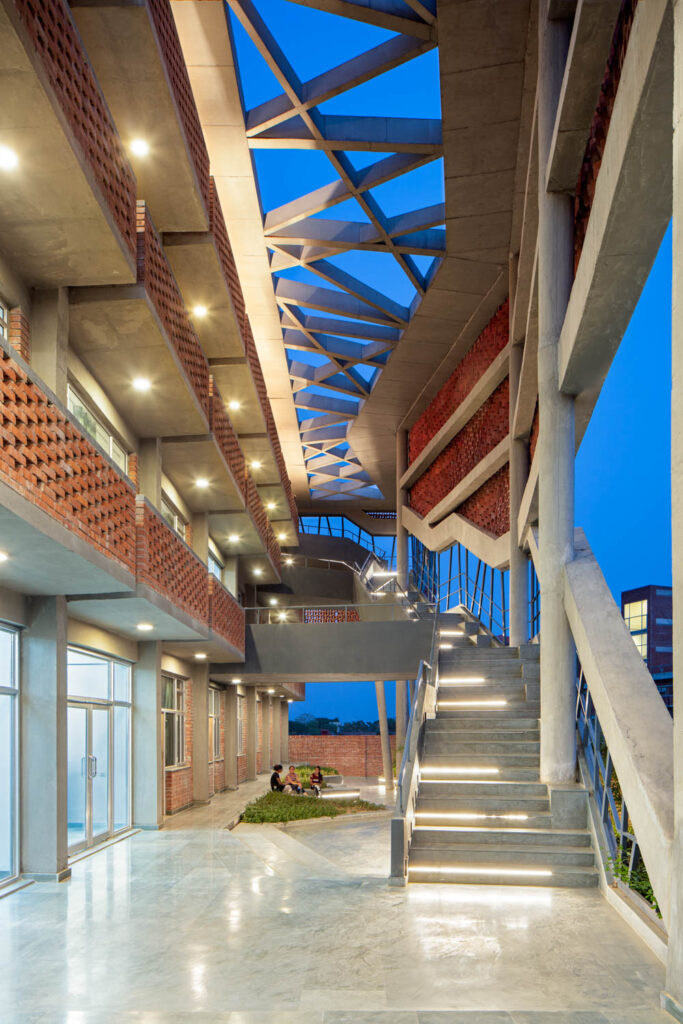
Government Colleges
Indian Institute of Technology (IITs)
Locations: Mumbai, New Delhi, Kanpur, Chennai, Kharagpur
Highlights: Renowned for their high rankings, exceptional faculty, robust industry connections, and impressive placement rates.
St. Andrews Institute of Technology and Management {SAITM}
Location: Gurgaon, Haryana
Highlights: Provides undergraduate programs in various specializations, including Computer Science Engineering (CSE), Computer Science Technology (CST), Artificial Intelligence and Machine Learning (AI/ML), Data Science, and Electronics & Telecommunication Engineering.
National Institutes of Technology (NITs)
Locations: Tamil Nadu, Karnataka, Kerala, Telangana
Highlights: Esteemed for their excellent academic programs, dedicated faculty, and strong placement records.
College of Engineering, Pune (COEP)
Location: Pune, Maharashtra
Highlights: One of the oldest government colleges in India, known for its rigorous academic programs and solid placement performance.
Delhi Technological University (DTU)
Location: New Delhi
Highlights: Offers a wide range of engineering disciplines, strong faculty, and effective placement support.
Netaji Subhas University of Technology (NSUT)
Location: New Delhi
Highlights: Recognized for its quality education, comprehensive academic curriculum, and good placement outcomes.
Private Colleges
Birla Institute of Technology and Science (BITS) Pilani
Location: Pilani, Rajasthan (with additional campuses in Goa, Hyderabad, and Dubai)
Highlights: Known for its rigorous academic programs, strong industry connections, and excellent placement records. Admission is through BITSAT.
St. Andrews Institute of Technology and Management (SAITM)
Location: Gurgaon, Haryana
Highlights: Offers undergraduate programs in various specializations, including Computer Science Engineering (CSE), Computer Science Technology (CST), Artificial Intelligence and Machine Learning (AI/ML), Data Science, and Electronics & Telecommunication Engineering.
Vellore Institute of Technology (VIT)
Location: Vellore, Tamil Nadu (with additional campuses in Chennai, Bhopal, and Amaravati)
Highlights: Renowned for its high-quality education, advanced infrastructure, and strong placement records. Admission is through VITEEE.
Thapar Institute of Engineering and Technology
Location: Patiala, Punjab
Highlights: Known for its robust academic programs, research opportunities, and effective placement support. Admission is through JEE Main or the institute’s entrance exam.
PES University
Location: Bangalore, Karnataka
Highlights: Offers high-quality education, strong faculty, and excellent placement support. Admission is through PESSAT or KCET. As one of the leading private colleges, it provides a comprehensive learning environment.
FAQs
What are B.Tech entrance exams in India?
B Tech Entrance Exams are standardized tests utilized for gaining admission into Bachelor of Technology programs at leading engineering colleges. These exams evaluate your knowledge and skills in key subjects such as Mathematics, Physics, and Chemistry. This section offers answers to frequently asked questions about B Tech Entrance Exam.
What are some major Engineering entrance exams in India?
JEE Main: Joint Entrance Examination Main
JEE Advanced: Joint Entrance Examination Advanced
BITSAT: BITS Admission Test
VITEEE: VIT Engineering Entrance Examination
MHT-CET: Maharashtra Common Entrance Test
KCET: Karnataka Common Entrance Test
How can I prepare for Engineering entrance exams in India?
Understand the Syllabus: Familiarize yourself with the syllabus and exam pattern.
Use Study Materials: Utilize textbooks, reference books, and online resources.
Practice Regularly: Solve previous years’ papers and take mock tests.
Revise: Regularly review and revise key concepts.
Seek Guidance: Consider coaching classes or online tutorials if needed.
What subjects are covered in engineering entrance exams?
Most B.Tech entrance exams cover:
Mathematics: Algebra, Calculus, Coordinate Geometry, Trigonometry
Physics: Mechanics, Thermodynamics, Optics, Electromagnetism
Chemistry: Physical Chemistry, Inorganic Chemistry, Organic Chemistry
What is the format of engineering entrance exams in India?
Question Types: Multiple-choice questions (MCQs) and sometimes numerical questions.
Duration: Typically 2 to 3 hours.
Marking Scheme: Usually involves positive marking for correct answers and negative marking for incorrect ones.
How do I apply for top engineering entrance exams?
Registration: Visit the official exam website to register.
Application Form: Fill out the application form with required details.
Payment: Pay the application fee as specified.
Admit Card: Download the admit card once it is released.
What is the eligibility criteria for B.Tech entrance exams?
Educational Qualification: Generally, you should have completed 10+2 with Physics, Chemistry, and Mathematics.
Minimum Marks: There might be a minimum percentage requirement in Class 12 exams.
Age Limit: Some exams have age restrictions.
How are B.Tech entrance exams scored?
In the B Tech Entrance Exam, scores are calculated based on the number of correct responses. Some of these exams also employ a negative marking scheme, where points are deducted for incorrect answers.
What should I carry to the exam center?
Admit Card: Essential for entry into the exam hall.
Photo ID: Valid identification like a passport, driver’s license, or Aadhaar card.
Stationery: Pencils, erasers, and sometimes a black/blue pen (check specific instructions).
When are the results announced?
JEE Main: Results are usually announced in February (for the January session) and in May (for the April session).
JEE Advanced: Results are generally declared in June.
BITSAT: Results are usually released in May or June.
VITEEE: Results are typically announced in April or May.
How do I check my engineering entrance exam results?
Results for the B Tech Entrance Exam are typically published on the official exam website. You can view your scores by logging in with your registration details.
What are the next steps after the results?
Counseling: Participate in counseling sessions for seat allocation.
Admission: Follow the admission process of the respective colleges as per the guidelines provided.

